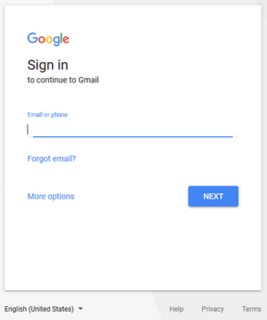This article needs additional citations for verification .(March 2019) (Learn how and when to remove this template message) |
 Screenshot of Opera Mail v1.0 running on Windows 7 | |
| Developer(s) | Opera Software |
|---|---|
| Stable release | 1.0.1044 [1] (February 16, 2016) [±] |
| Operating system |
|
| Standard(s) | POP3, IMAP, NNTP, RSS, Atom |
| Type | Email client, feed aggregator, IRC client, news client |
| License | Freeware |
| Website | 32 bit standalones for Windows and macOS 32 and 64 bit binaries of the Opera suite for Windows , macOS , Linux and FreeBSD |
Opera Mail (formerly known as M2) is the email and news client developed by Opera Software. It was an integrated component within the Opera web browser from version 2 through 12. With the release of Opera 15 in 2013, Opera Mail became a separate product and is no longer bundled with Opera. [2] Opera Mail version 1.0 is available for OS X and Windows. It features rich text support and inline spell checking, [3] spam filtering (both automated and Bayesian), a contact manager, and supports POP3 and IMAP, newsgroups, and Atom and RSS feeds.

An email client, email reader or more formally mail user agent (MUA) is a computer program used to access and manage a user's email.

Opera Software AS is a Norwegian software company, primarily known for its desktop Opera web browser, and its mobile counterpart Opera Mini. It was demerged from its parent company Otello Corporation as part of the latter's divestiture of its web browser business. Opera browsers have more than 350 million users worldwide across multiple platforms.
Opera is a freeware web browser for Microsoft Windows, Android, iOS, macOS, and Linux operating systems, developed by Opera Software, a Norwegian software company, publicly listed on the NASDAQ stock exchange, with the majority of ownership and control belonging to Chinese businessman Zhou Yahui, founder of Beijing Kunlun Tech which specialises in mobile games and Chinese cybersecurity company Qihoo 360. Opera is a Chromium-based browser using the Blink layout engine. It differentiates itself because of a distinct user interface and other features.
Opera Mail uses one database that keeps an index of all mail and sorts the messages automatically into several "views" or access points. Messages are automatically sorted by types, such as mailing lists, and mail with attachments. This approach to indexing allows for quicker access to messages. For instance, a message sent to a mailing list with a word document attached will appear in both the "Documents" attachment view and in the "Mailing lists" view. Opera Mail can also use Bayesian filtering to automatically sort messages into other views. All messages in the database are accessed by opening the "Received" view.
The integrated mail component included a simple IRC client, but this is no longer present in the standalone program. The IRC client supported multiple servers, file transfers, and interface customization through CSS.
Opera Mail can display text and HTML emails and uses the Presto layout engine to display HTML.

Hypertext Markup Language (HTML) is the standard markup language for documents designed to be displayed in a web browser. It can be assisted by technologies such as Cascading Style Sheets (CSS) and scripting languages such as JavaScript.
A browser engine is a core software component of every major web browser. The primary job of a browser engine is to transform HTML documents and other resources of a web page into an interactive visual representation on a user's device.
Opera Mail is at the end-of-life stage of its product lifecycle; this means neither technical support nor product and security updates will be provided. The product is no longer available for download. Users of Opera Mail who have large amounts of email and would like to utilize 64-bit performance can use the 64-bit build of the Opera Web Browser, which is the same code contained in the standalone email client. [ citation needed ]








